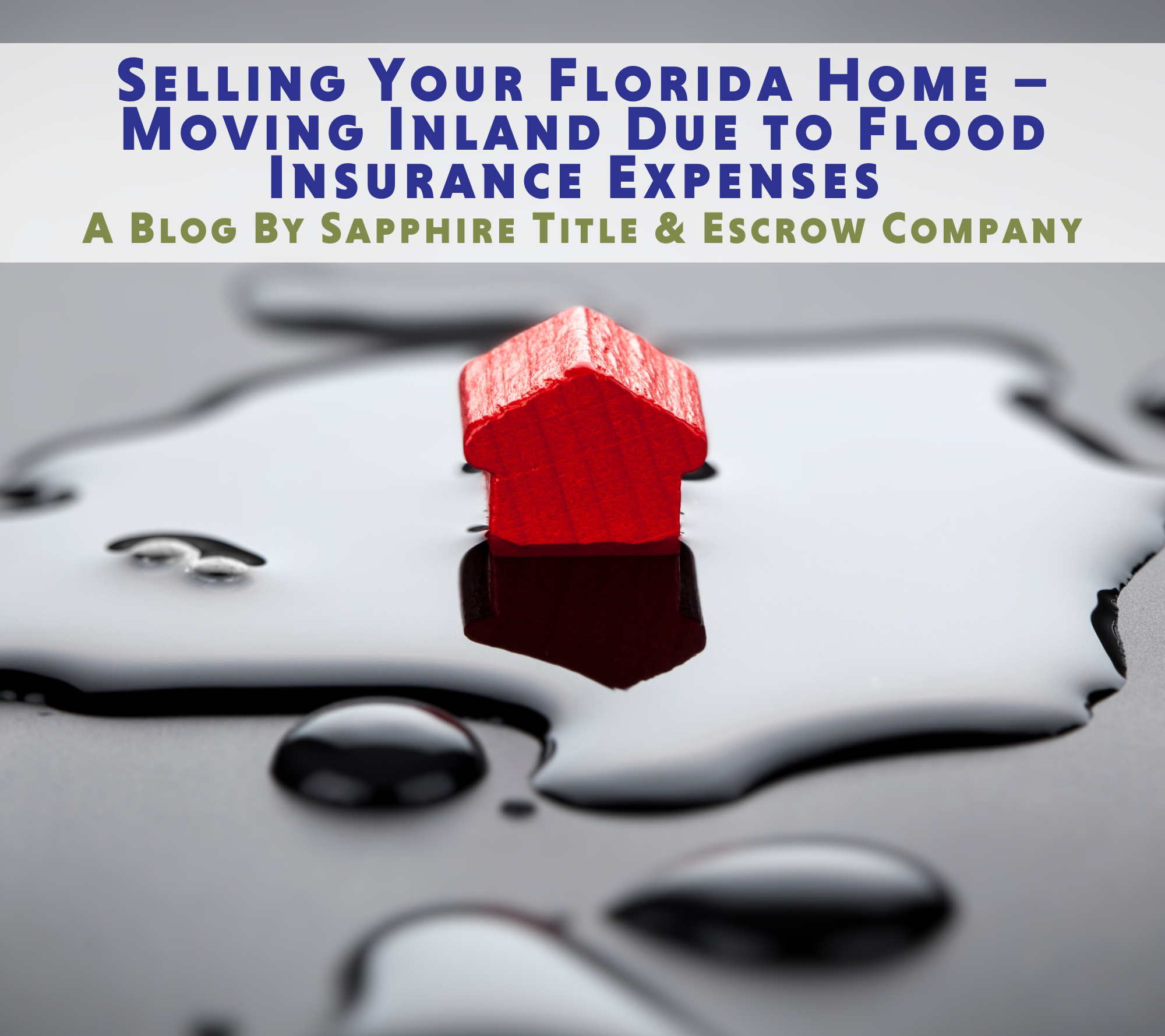
Selling Your Florida Home – Moving Inland Due to Flood Insurance Expenses
The arrival of Hurricane Idalia is a stark reminder to Floridians that, in addition to the excitement and joy of coastal living, Florida’s hurricane season also comes with the challenge of high insurance costs. Living in the sunshine state, especially along the coast in a hurricane-prone area, often requires homeowners to carry substantial insurance coverage to safeguard against potential damage. This significant expense, post-storm home repairs, as well as general additional challenges in the current financial conditions may have you considering selling your coastal home. In this blog post, we’ll discuss flood zones, insurance costs and premiums, and factors to consider when deciding whether you want to sell.
Flood Zones
As stated by the National Flood Insurance Program (NFIP), “Everyone lives in an area with some flood risk—it’s just a question of whether you live in a high-risk, low-risk, or moderate-risk flood area.” Your insurance coverage and premium will be determined, in part, by your home’s flood zone/flood risk. Property owners, insurance agents, and lenders can use flood maps to determine flood insurance requirements and policy costs. If you don’t know your flood zone or would like to determine areas less likely to flood, we recommend using FEMA’s Flood Map Tool. When researching other areas, keep in mind that flood risk changes over time and no property is guaranteed to remain at a low flood risk, even if it’s inland. No home is completely safe from potential flooding, and flood insurance should always be considered, even if outside of a high-risk area.
Insurance/Insurance Costs
Under federal law, people with homes in high-risk areas with mortgages from federally insured or regulated lenders must have flood insurance. Lenders can also require flood insurance for mortgages on homes in low and moderate-risk areas as well. Again, the risk level is determined by FEMA, who we learned recently has changed the way they calculate flood insurance prices. While FEMA used to rely on flood zone maps alone, their newly implemented NFIP Risk Rating 2.0 pricing methodology is now being used to determine premium prices. Risk Rating 2.0 allows FEMA to incorporate additional factors, including a property’s distance from the ocean, rainfall levels, and overall cost to rebuild the home when determining a property’s risk level. While the new methodology may save some policyholders money, the change means significant increases for others. In fact, 80.2 percent of Florida policies will see an increase in the first year of the implemented changes, with increases expected annually. Check out this interactive map to learn more about how the changes are impacting Florida. The information on FEMA’s Risk Rating 2.0 State Profiles page is another great resource.
Factors to Consider
In addition to determining your flood zone and learning more about flood insurance in Florida, we recommend prospective sellers partner with a knowledgeable real estate agent to discuss other selling benefits and disadvantages. Be sure to discuss the best time of year to list, what you can expect when searching for a new home, disclosures for potential buyers, and what you, as a seller and current homeowner, can do to minimize your flood risk.
The great news is that hurricane season ends in November, and the bulk of your worries may end then. It’s possible to lower your flood insurance premiums by making improvements to your house that mitigate its exposure to flooding, such as relocating utilities and elevating your home, among others. Should you choose to move forward with selling, be reminded that prospective buyers have likely already done their research and may be aware of the flood risk as they shop for homes in your area. Whether your home was recently classified as high-risk or you purchased your home when it was already deemed to be in a flood zone, know that you are not alone. Your home is much more than a flood zone designation, and you have options. At Sapphire Title & Escrow Company, we understand that growing insurance premiums can strain your finances and affect your ability or desire to hold onto your property. If you’re considering selling your home, connect with a knowledgeable real estate agent, and be reminded that we are here for all your title and escrow needs.
